The new MSU Master in Public Policy on Post-Soviet Space is a two-year degree designed to prepare future professionals in all dimensions of public affairs for a great diversity of careers worldwide. The Programme starts in 2018.
The objective of the programme is to help students to think critically about complex policy issues, to make decisions and to transform their ideas into action. Besides, the program aims to educate young political scientists and potential policy-makers with deep knowledges in fields of Post-Soviet policy-making process and comparative politics. Finally, another principal objective of the programme is to provide our students with modern methodology of public policy analysis and elaborate the skills of critical public policy evaluation.
The programme consists of a number of mandatory core courses in public policy analysis, economics, law, and methods. In addition to the mandatory core curriculum, students have the opportunity to develop thematic expertise by pursuing one of the optional areas of concentration.
Core Modules:
- Power Networks and political institutions in Post-Soviet States
- Different Norms and Realities: Post-Soviet and Western Values
- The Soviet Civilization
- Political and Social Profile of Post-Soviet Elites
- Post-Soviet Political Economy
- International Policy in the Post-Soviet space
- Regional security in the Post-Soviet Space
- The models of the Political Integration in the Post-Soviet Space
Optional Modules:
- USSR disintegration: political and economic causes
- Color revolutions in the post-soviet space
- Neo-patrimonial democracy in Ukraine
- Belorussia: the specific model of state-building
- Military threats in the Post-Soviet Space
- Baltic States: from Soviet to European Union
- Political Islam in Post-Soviet Countries
- Political Regimes in Central Asia: Post-Soviet Specific
- EU “Eastern Policy”: prospects and restrictions
- Post-Soviet Space in the Context of China’s Integrational Project
- Eurasian Integration’s Economic Model
- Political Regimes in Caucasus Republics: Post-Soviet Specific
- BRICS as Alternative Globalization
- “Frozen Conflicts” in the Post-Soviet Space
- Post-Soviet Space in Context of Russian Foreign Policy
- “Problem States” of the Post-Soviet Space
- State Companies as Economy and Policy Actors in the Post-Soviet Space.


